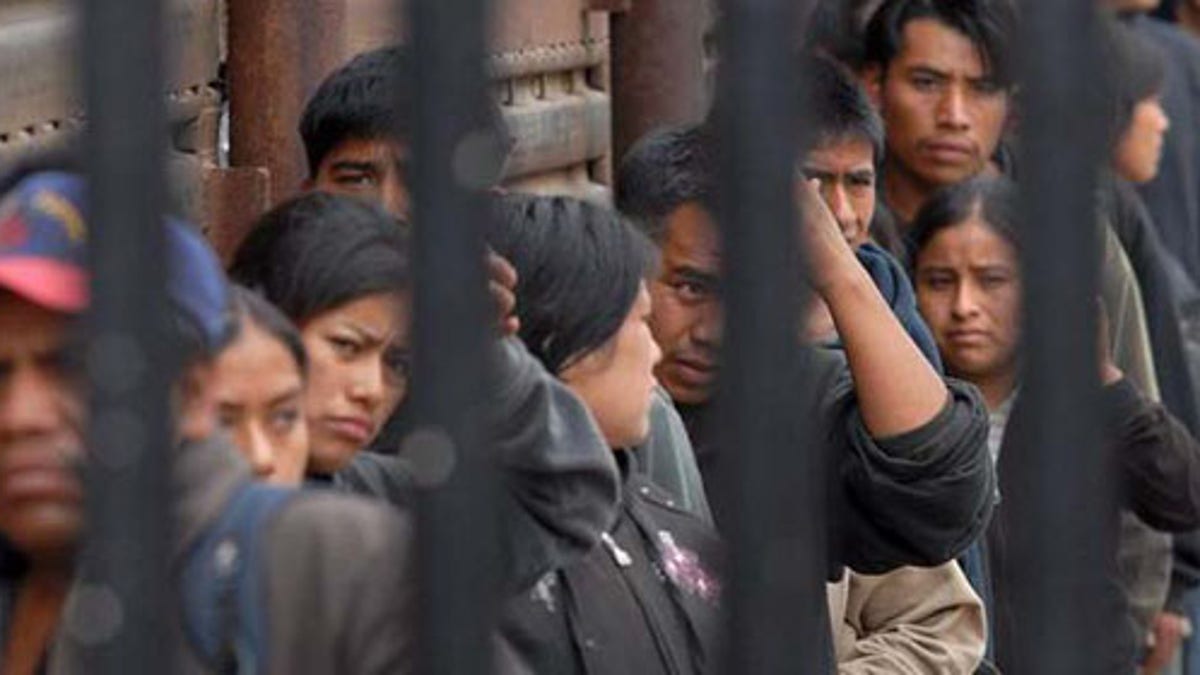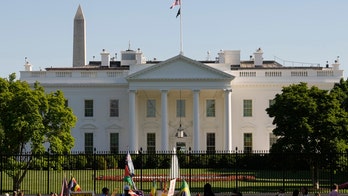
Undocumented form a line while waiting to be deported to Mexico. EFE/File (EFE)
Close relatives of U.S. citizens who are undocumented would be allowed to remain in the United States while they try to legalize their status under a change proposed by immigration officials.
In a dramatic departure from a 60-year policy, undocumented immigrants who meet certain criteria would not have to leave the United States while they await approval of their application to legalize their status.
U.S. Citizenship and Immigration Services, or USCIS, said in a statement Friday that the proposed change “would reduce the time U.S. citizens are separated from their spouses, children, and parents (i.e. immediate relatives) who must obtain an immigrant visa abroad to become lawful permanent residents of the United States.”
Under the proposed regulation, to qualify to remain inside the country, the immigrants must prove that their absence would create an “extreme hardship” for their U.S. citizen relative, officials say.
Immigration Courts on Hold in 4 Cities Pending Deportation Review
At present, undocumented immigrants who are petitioned for residency by their U.S. citizen relatives must return to their native homeland, apply for their immigration documents at a U.S. Embassy or consulate, and stay out of the United States while they wait for a decision.
The process – often complicated when the person must apply for a special waiver if he or she entered and lived in the United States illegally – can take up to a year, or more.
The new rule would alter a 60-year practice.
“The requirement that someone who entered the U.S. illegally must leave in order to apply for an immigrant visa dates back to the 1952 Immigration and Nationality Act,” said USCIS spokesman Timothy Counts, “which is the foundation of contemporary immigration law.”
The proposed change, which the USCIS put in the Federal Register, would likely take effect by the end of the year, said Counts. A new form, the I-106A, would be created to accommodate the change, he added.
For Latinos, Immigration is More Personal Than Political, Fox News Latino Poll Says
Counts said it is impossible to know how many people would benefit from the change until applications are received.
The Obama Administration has come under increasing fire by immigration advocates who say the president has failed to fulfill his promise to help certain undocumented immigrants legalize their status.
They have been particularly critical of the record number of deportations that have occurred under Obama – more than 1 million since he took office.
The administration has blamed Republicans for the failure of Congress to pass a comprehensive immigration reform bill, which would address both enforcement as well as a way for certain undocumented immigrants to embark on a path to legalization.
But in recent months, the administration has taken steps outside of Congress to change various aspect of the immigration system.
Latino Voters Overwhelmingly Support Dream Act, Path to Citizenship, Poll Shows
Last year officials announced a temporary suspension of deportations as the administration set out to review cases of people ordered removed. Administration officials said they wanted to change the deportation system to prioritize removing criminals and national security risks.
Those who favor strict immigration enforcement firmly oppose such moves, and accuse the administration of implementing “backdoor amnesty” that rewards lawbreakers.
USCIS officials stressed that the proposed rule aims to benefit U.S. citizens.
“The law is designed to avoid extreme hardship to U.S. citizens, which is precisely what this proposed rule will more effectively achieve,” said USCIS Director Alejandro Mayorkas in a statement released Friday.
“The current process can subject U.S. citizens to months of separation from family members who are waiting for their cases to be processed overseas. The proposed change will have tremendous impact on families by significantly reducing the time of separation.”
In fiscal year 2011, which ran from October, 2010 to September, 2011, USCIS received more than 23,000 applications for a waiver from outside the United States.
Patriotism and Respect for Military High among Latinos, Fox News Latino Poll Shows
The majority of those applications – slightly more than 17,000 – were filed in Mexico, said Counts.
People who entered the country legally, but then overstayed their visas, are allowed to remain in the United States while they apply to legalize their status, immigration officials say.
The number of so-called I-601 waivers filed inside the United States in fiscal year 2011 is 9,245, according to the USCIS.
In the larger scheme of illegal immigration, the number of people affected by the proposed rule is relatively small. An estimated 11 million undocumented immigrants live in the United States.
USCIS officials say many undocumented immigrants are reluctant to leave the country under the current system because, if denied U.S. legal status, they could be barred from the United States for up to 10 years.
Counts said that under the proposed rule change, undocumented immigrants who would apply to adjust their status while remaining in the United States would still be considered to have an illegal status.
He said that those who are granted a waiver and who qualify for residency still would have to return to their homelands for an interview with U.S. consular officials. But that would entail being out of the United States for no more than two weeks before they would be able to return, he said.
Follow Elizabeth Llorente on Twitter: @Liz_Llorente
Elizabeth Llorente can be reached elizabeth.llorente@foxnewslatino.com
Follow us on twitter.com/foxnewslatino
Like us at facebook.com/foxnewslatino




